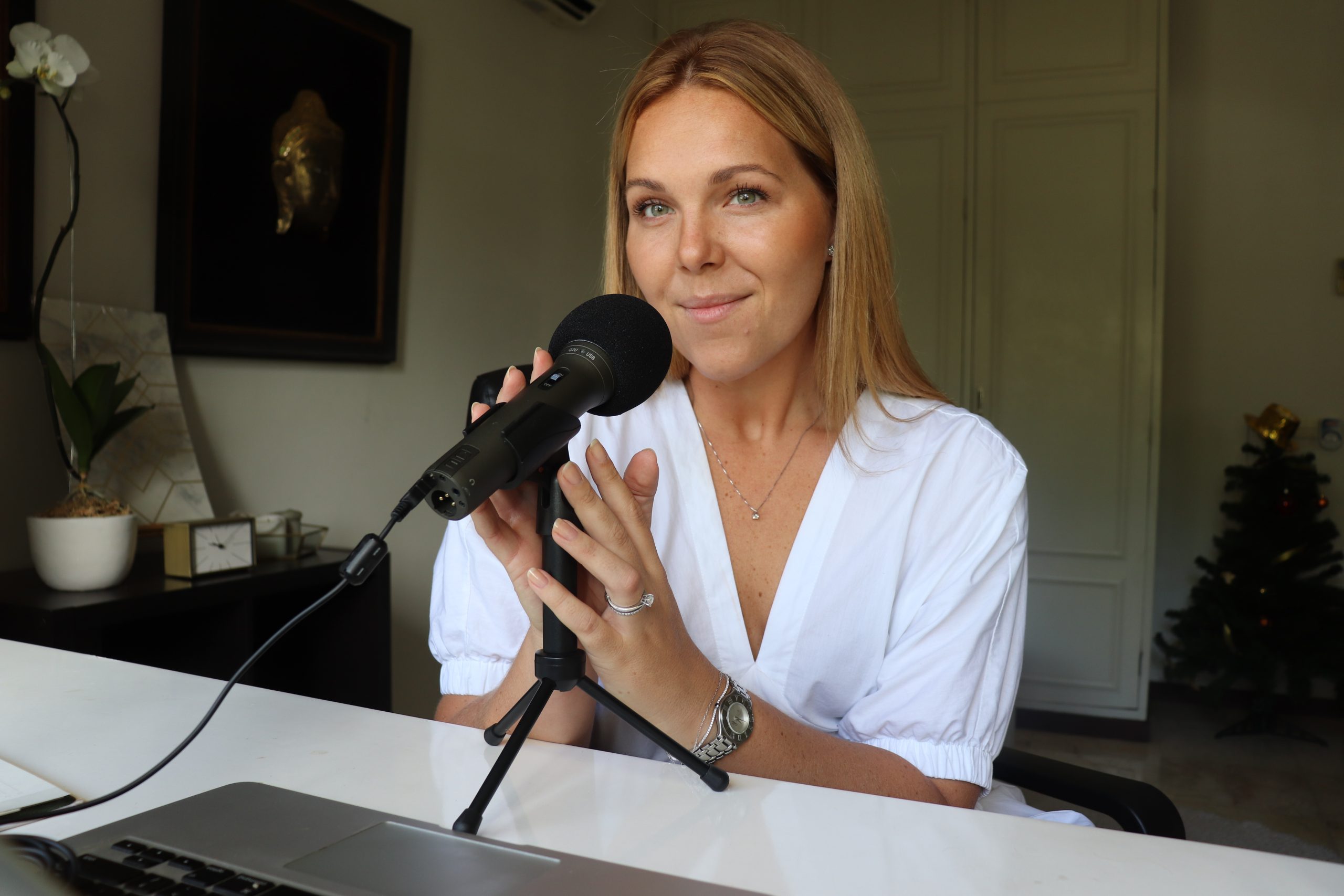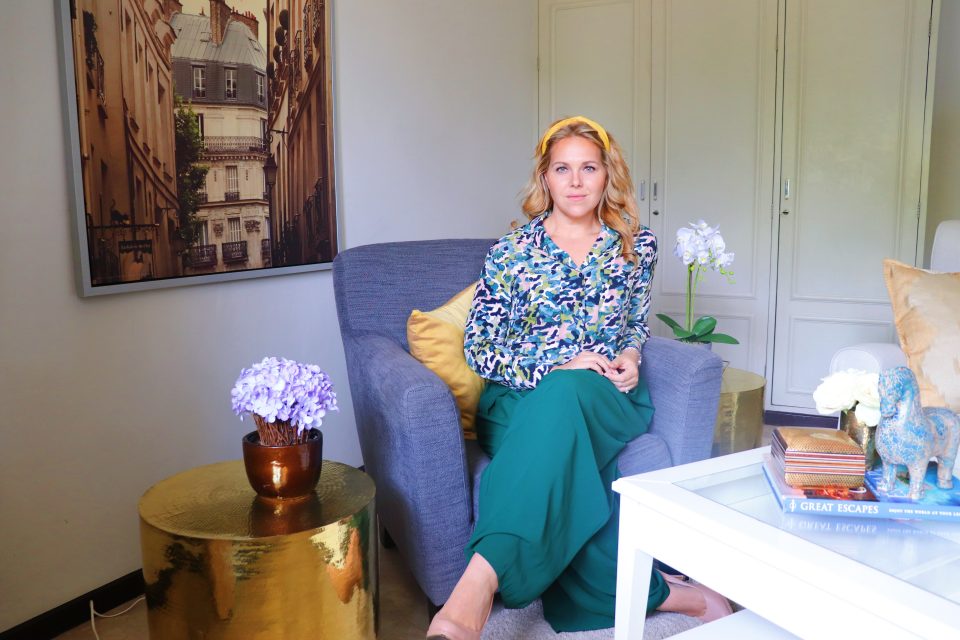Happiness is a feeling we all aim to have.
What exactly is happiness? Stephanie Dekker BSc., MSc., MSc., MA, a counsellor based in Jakarta, discussed with Indonesia Expat about mental health issues that have been taking a higher toll amidst this pandemic. Take a deep dive into understanding ourselves better from Stephanie’s expertise.
Stephanie, tell us about yourself. Why did you choose to settle in Indonesia?
I’ve been an expat my entire life due to my father’s job. It’s a childhood I cherished. After my post-secondary education, my parents happened to be living in Jakarta. While I was visiting my parents, I met my husband who was also working. After a short time, we both fell in love with Indonesia. We lived in Medan and have travelled all over, finally settling in Jakarta with our two children. Indonesia is a beautiful country filled with incredible people and potential. My family and I have been so lucky to call it home for the last few years.
You’re passionate about psychotherapy and the ways goal-setting, truth-telling, and emotional connection can make a profound difference to someone. Where did this passion come from?
I’ve had the opportunity to meet people from all over the world from a variety of backgrounds and religions. I found that despite culture, we all have a few common threads that bind us: our humanity, our basic needs for survival, and the complexities of the human mind. I’ve been fascinated by the way perspective, attitude, biochemistry, biology, and community can impact our degree of happiness. I pursued this curiosity through my academics and eventually into my professional life.
What are mental and emotional freedoms?
Victor Frankl famously said in his book “Man’s Search for Meaning” that the last human freedom is the attitude with which he chooses to approach any given set of circumstances.
By this, Victor meant we have the power to control how we feel about, react to, and engage with any situation we are faced with. It’s often a major goal of counselling to achieve this level of control, and it can be defined as mental or emotional freedom. It’s when you’re comfortable with life happening with you, and not to you.
If we can get to a place in our minds where, regardless of how difficult the times we face, we can calmly and reasonably react, then we have managed emotion freedom. This is, however, quite a complicated and lengthy process. It’s something that can take years to master. The value of this process is better found in the journey, as opposed to the destination.
As a counsellor, you practice cognitive behavioural therapy (CBT) or talk therapy. What is CBT?
Cognitive behavioural therapy is one of several different approaches to talk therapy commonly practised today. It’s used in a variety of cases from depression and anxiety to marital issues. CBT assumes the idea that each person holds a variety of core beliefs that are established along with their lives from a variety of circumstances and maintained for a multitude of reasons. Core beliefs are not something that we consciously think about, however, they guide and dictate our daily behaviour.
CBT assess what those core beliefs are, why they were established in the first place, how they have been reinforced, and then decides if these core values are beneficial for you. If they’re not, we work together to change the core beliefs into something more conducive to the behaviour you’re hoping to exhibit. Essentially is assessing the way we think to change the way we feel to change the way we behave.
What can we expect in a session?
The first session is a time for questions and a general “getting to know you”. The client goes over what their main concerns are and what their preferred goals would be by the end of the process. Most sessions are not done in person nowadays. Some clients much prefer this; they can engage from the comfort of their own homes. Others attend therapy as an escape from their lives and really enjoy the process of removing themselves from their usual environment to spend time working on themselves.
What are the topics or reasons we can consult you with?
I’m available as a consultant to help anyone achieve a specific goal they’re hoping to accomplish. I don’t diagnose or prescribe. I can help on a consulting basis to give you tools to help manage emotions and behaviours and generally work towards feeling better. Feel free to get in touch – the first session is always complimentary. During this time, we can have a discussion to establish if I’m the right person to help you out, or if you need a referral.
Being vulnerable is hard for some of us. How can clients open up?
A central tenant in the world of counselling is the therapeutic alliance. This is the relationship between the counsellor and the client. Study after study shows that there’s a strong positive correlation between therapeutic alliance and the therapeutic outcome. Simply, if the client and counsellor get along, then the work will be more effective.
Two opposing camps suggest counsellors should reciprocate vulnerability to foster vulnerability. Others suggest that this can create a hazy boundary between professional and client. Personally, I think it’s important to show your humanity. However, in the same breath, an experienced therapist will know when it’s time to listen and when it’s time to share.
Most of the time, clients show up to a session for a specific reason and they’ve reached a point where they’re ready to have that discussion. Sharing vulnerable information and personal details can be very intimidating. One great thing that comes with therapy is that conversations are entirely confidential. This can help with that feeling of safety and, consequently, help the client to be comfortable enough to open up.
How can we ground ourselves in times of being overwhelmed and stressed?
Anxiety is a condition that comes from the fear of a future potential situation. There are several different types of exercises that we can do to help control these irrational fears. Once we establish that our basic needs are being met, we can move on to examine some other potential factors that are making us feel stressed or overwhelmed. We look to control the things we can to make us feel less insecure about our current situation.
The unpredictability of these times can be quite triggering for anxiety and depression symptoms. Humans love routine and predictability. It makes us feel safe and in control. This is something that’s been lacking with constant changes and the increased stress of everyone staying home. In these times, it’s important to establish a routine. It can be as brief as a morning coffee ritual, or a workout followed by breakfast. For those at home with kids, implementing a strict night-time routine that allows everyone to work together to wind down for the day; dinner, bath, book, bed. It’s up to you to decide how to create that control in your daily life.
Social interactions are very much missed nowadays. How can we maintain these?
We’re lucky to be living in a time where we can see family and friends across the world at the click of a button on our phones. Setting up meetings with our loved ones should be regular and often. It might seem like a simple suggestion, but it’s an impactful one. Everything from virtual book clubs to virtual cooking classes can be shared experiences we do together while maintaining our physical distance.
As social beings, we thrive off community. We need to find ways to create in our pandemic world. An alternative social interaction could be something super simple. We don’t even need to be talking to each other. I’ve read studies where mood was improved when people connected through Facetime and simply worked from home in each other’s presence. It can make us feel less alone knowing that someone is doing the same thing as we are, regardless of whether they’re next door or on the other side of the world.
Share with us your thoughts on mental health issues and awareness in Indonesia.
Mental health issues in Indonesia are similar to those in the rest of the world. They range from cases of depression to severe cases that need psychiatric treatment. One thing that is still quite rampant here is the stigma associated with mental health issues. This is slowly dissipating in parts of the Western world, but it also remains a huge part of the problem. I’d love to say that things are getting better, but unfortunately, we are living in a time where mental health is particularly fragile, even for those who had never experienced mental health issues before. Large-scale, unwanted changes and uncertainties can result in some impactful consequences.
Some people don’t believe mental health exists. What would you like to say to them?
We all have physical and mental health. Just like our physical health, we need to work to maintain our mental health. This is not something that anyone is exempt from. Of course, some people might feel more capable of dealing with life’s difficult circumstances than others. However, this doesn’t make anyone less strong or less competent. Just like we work to keep our bodies in shape, we must work to keep our minds in shape.
I don’t subscribe to the idea of forcing my beliefs onto anyone else. Those who don’t believe mental health exists to the point where they feel that they do not need to work on strengthening it are limiting their abilities. We can always improve our mental strength.
Is your podcast, Beyond the Session, another way for you to educate the public on mental health?
Developing the podcast was such a rewarding project for me! I’m in the process of producing season two and it was something that came about in a bit of a desperate moment.
It started midway through 2020 when I was struggling with the changes forced upon me concerning COVID-19. I felt that my career trajectory had changed; I was overwhelmed with homeschooling, keeping our two-year-old entertained, we were all on top of each other and constantly living in fear of disease. It was a release for me – a way I could feel as though I was contributing and helping from the comfort of my home office. I had thoughts and feelings that I felt someone might benefit from hearing about, and it evolved into a bit of an educational expression of my experiences.
What should we focus on this year from mental and emotional perspectives?
Gratitude. The research behind the power of gratitude is indisputable. In times of turmoil, we must focus on the good things. I understand that this can be difficult when you’re literally scared for your life, your future, or your stability, but it’s a practice that rewards hope. When we identify what we’re grateful for, we can shift our perspective more towards optimism.
I’m not suggesting we lie to ourselves and say everything is all sunshine and rainbows – no. We should specifically pick the good in our lives at that moment and highlight them to help breed hope. When we’re thankful, we can recognise the potential for happiness. That little spark is all we need to foster and help it grow.
We know that 2021 won’t look too different from 2020. This means we need to make sure that we have the physical and mental stamina we need to get through it. Gratitude is one practice that can help us achieve this.
How can we get in touch and book a session with you?
The best way to get in touch with me is via this email address info@stephaniedekker.org. You can also visit my website at www.stephaniedekker.org and you can find “Beyond the Session” on any podcast streaming platform to listen to my podcast.




